•As stakeholders offer way forward for Nigeria’s economy
By Mustafa Biodun
In recent years, the Central Bank of Nigeria (CBN has implemented difficult reforms to tackle long-standing obstacles weighing on price and exchange rate stability. The reforms are not only beginning to show positive results, but have triggered rise in international reserves, improved access to forex in the official market, dip in inflation figures and reignited use of naira cards for international transactions. For many analysts, Nigeria’s potential is huge and continued success requires collaborative implementation mechanisms by monetary and fiscal authorities.
Before now, one of the biggest challenges facing the Nigeria economy was limited access to forex. That challenge meant that businesses and travellers had to turn to the parallel FX market to surge for funds and in the process creating arbitrage that opened the doorway for FX speculation to thrive.
In response, the Central Bank of Nigeria (CBN) embarked on a series of bold reforms to attract more foreign capital to the economy, achieve price and exchange rate stability.
In 2023 the Bola Tinubu administration and the CBN, led by its Governor, Olayemi Cardoso liberalised the foreign exchange market, stopped central bank financing of the fiscal deficit, and reformed fuel subsidies. The government also strengthened revenue collection and took strategic steps to reduce surging inflation rate.
Since these reforms were implemented, international reserves have increased, and anyone can now access foreign exchange in the official market.
Nigeria successfully returned to international capital markets last December and was recently upgraded by rating agencies. A new domestic, private refinery is positioning Nigeria up the value chain in a fully deregulated market.
Naira cards resume int’l usage
With rising dollar liquidity, Nigerian banks have lifted over three years moratorium on the use of naira-funded debit cards abroad as dollar liquidity rises.
Three Tier-1 banks and mid-tier bank, United Bank for Africa (UBA) Plc, FirstBank, GTBank and Wema Bank Plc respectively, have announced the resumption of international transactions on their naira debit cards.
The development comes about three years after many banks suspended international transactions on naira debit cards or dip in dollar liquidity, forcing many local lenders to restrict transactions of local cards abroad. Transactions are however, allowed for dollar-funded cards, usually linked to cardholders’ domiciliary accounts.
In recent months, analysis of FX inflows in the last few months showed that Nigeria attracted $5.96 billion monthly inflows from May 2025 till date.
Industry report showed that Nigeria’s foreign exchange market witnessed a significant boost in May, with total inflows rising by 62.0 per cent month-on-month (M-o-M) to $5.96 billion, driven largely by increased participation from domestic and foreign investors. This marked one of the highest inflow level in recent months and signals improving market sentiment amid macroeconomic reforms and a relatively stable naira.
In emailed note to investors, analysts at Financial Derivatives Company Limited attributed rising FX inflows to surge in oil prices and multiple inflow channels created by the Central Bank of Nigeria.
The CBN has in recent months, activated multiple FX sources to increase dollar inflows, boost dollar access to manufacturers and retail end users and support naira recovery across markets.
From moves to improve diaspora remittances through new product development, the granting licenses to new International Money Transfer Operators (IMTOs), implementing a willing buyer-willing seller FX model, and enabling timely access to naira liquidity for IMTOs, the apex bank has simplified dollar-inflow channels for authorised dealers and other players in the value chain.
In a notice to customers, the UBA said the resumption aligns with its continued commitment to providing clients with seamless and enhanced banking experiences.
“In line with our continued commitment to providing you with seamless and enhanced banking experiences, we are pleased to inform you that all UBA Premium Naira Cards, including Gold, Platinum, and World variants are now enabled for international transactions,” the bank said.
“This means you can now use your Premium Naira Card for everyday payments, online shopping, POS, and ATM transactions across the world, with more ease and flexibility.
“If you haven’t used your card recently, now’s a great time to rediscover the convenience and prestige that comes with being a UBA premium cardholder. Also announcing the development in a recent statement, Wema Bank said customers can now “pay in dollars” with their naira cards.
“Your Wema Naira Mastercard just went global! Now you can pay in dollars on all your favourite international platforms; Amazon, eBay, AliExpress? Netflix, Spotify, YouTube,” the bank said.
In emailed note to customers, FirstBank said its Naira Mastercard can now be used for international transactions. “Shop online or spend up to $500 every month on your preferred channel seamlessly,” the bank said.
Guaranty Trust Bank pegged its quarterly transaction limits across different channels at $1,000 for online and PoS transactions while ATM transactions are limited to $500.
The banks had earlier announced the resumption of international transactions on their naira debit cards.
In a report, head of financial institutions ratings at Agusto & Co, Ayokunle Olubunmi, said the improved liquidity in the foreign exchange (FX) market supported banks’ decision to reactivate their naira cards for global transactions.
“The moderating premium on the parallel market transactions and the reduced arbitrage opportunities is also responsible for the decision,” he said.
Records showed that many banks, including Stanbic IBTC Bank, United Bank for Africa, Access Bank, Standard Chartered Bank Nigeria, GTBank, among others have at some point, reviewed international spending limit on naira cards, while at other times, suspended transactions on such cards, unless they are linked to dollar-funded domiciliary accounts. Analysts said that by allowing travellers use their naira-cards abroad, the banks are making it easy for cardholders to pay their hotel bills, make reservations and carry out other transactions using their debit cards.
FX reserves position rises
Olayemi Cardoso-led Central Bank of Nigeria (CBN) recently announced quantum leap in the net FX reserve position at $23.11 billion at the end of last year.
Cardoso had, upon assuming office in October 2023, prioritised reforms to rebuild Nigeria’s economic buffers and strengthen resilience.
In the foreign exchange market, the apex bank faced a backlog of over $7 billion in unfulfilled commitments and a fragmented FX regime characterised by multiple forex rates, which had encouraged arbitrage opportunities.
This regime stifled much needed foreign investment, and led to the depletion of our external reserves which fell to $33.22 billion in December 2023.
“Over the past year, we have undertaken critical reforms to unify Nigeria’s exchange rate, eliminating distortions and restoring transparency. This unification has enabled us to clear the outstanding foreign exchange obligations, giving businesses—ranging from manufacturers to airlines—the confidence to plan and invest in the future. To further enhance the functionality of the foreign exchange market, we are introducing an electronic FX matching system, which has proven effective in other markets,” Cardoso said.
Net FX reserve accretion surges
According to the apex bank data, NFER stood at $23.11 billion, the highest level in over three years, a marked increase from $3.99 billion at year-end 2023, $8.19 billion in 2022, and $14.59 billion in 2021.
The NFER, which adjusts gross reserves to account for near-term liabilities such as FX swaps and forward contracts, is widely regarded as a more accurate indicator of the foreign exchange buffers available to meet immediate external obligations.
Gross external reserves also increased to $40.19 billion, compared to $33.22 billion at the close of 2023.
The increase in reserves reflects a combination of strategic measures undertaken by the CBN, including a deliberate and substantial reduction in short-term foreign exchange liabilities – notably swaps and forward obligations.
The strengthening was also spurred by policy actions to rebuild confidence in the FX market and increase reserve buffers, along with recent improved foreign exchange inflows – particularly from non-oil sources.
The result is a stronger and more transparent reserves position that better equips Nigeria to withstand external shocks. The expansion occurred even as the CBN continues to reduce short-term liabilities, thereby improving the overall quality of the reserve position.
“This improvement in our net reserves is not accidental; it is the outcome of deliberate policy choices aimed at rebuilding confidence, reducing vulnerabilities, and laying the foundation for long-term stability,” Cardoso commented.
“We remain focused on sustaining this progress through transparency, discipline, and market-driven reforms.”
Reserves have continued to strengthen in 2025. While the first quarter figures reflected some seasonal and transitional adjustments, including significant interest payments on foreign-denominated debt, underlying fundamentals remain intact, and reserves are expected to continue improving over the second quarter of this year.
Going forward, the CBN anticipates a steady uptick in reserves, underpinned by improved oil production levels, and a more supporting export growth environment expected to boost non-oil FX earnings and diversify external inflows. The CBN remains committed to prudent reserve management, transparent reporting, and macroeconomic policies that support a stable exchange rate, attract investment, and build long-term resilience.
More FX sources bolster inflows
Foreign capital inflows to the domestic economy remains crucial elements in the drive to achieve monetary and fiscal policy stability. The apex bank is cultivating more sources of FX to increase dollar inflows, boost access to manufacturers and retail end users.
From moves to boost diaspora remittances through new product development, the granting licenses to new International Money Transfer Operators (IMTOs), implementing a willing buyer-willing seller FX model, and enabling timely access to naira liquidity for IMTOs, the CBN has simplified dollar-inflow channels for FX dealers to boost business and economic growth.
President, Association of Bureaux De Change Operators of Nigeria (ABCON), Aminu Gwadabe, said the policy shifts showed the level of creativity, policy and hard work that Cardoso puts in, ensuring that more forex flows into the economy and remain accessible to businesses.
He said diaspora remittances to Nigeria, estimated at $23 billion annually, remain a reliable source of forex to the domestic economy. There are also other sources and policies that are being explored by the apex bank to keep dollar inflows coming.
Way forward for economy
In an emailed report, the IMF’s mission chief to Nigeria and an assistant director in the IMF’s African Department, Axel Schimmelpfennig disclosed that to address these challenges,
Nigeria needs stronger and more sustained growth to lift millions of people out of poverty and food insecurity, which is what the authorities are focusing on.
“This does not happen overnight. In the meantime, making growth more inclusive also requires scaling up the existing cash transfer system. Second, as an essential ingredient for economic development, Nigeria needs an effective budget framework. Delivering effective investments in people and infrastructure requires realistic budget assumptions, strong expenditure management, and transparent implementation and reporting—which, in turn, can strengthen accountability. For its part, monetary policy should continue to decisively tackle inflation and reduce economic uncertainty,” he said.
Furthermore, IMF’s resident representative in Nigeria, Christian Ebeke, said the government should continue to increase domestic revenues.
“This is essential given Nigeria’s substantial funding needs in growth-enabling areas such as agriculture, infrastructure, including access to electricity, and climate adaptation. The government’s tax reforms will make it easier to pay taxes and ensure that everyone who owes taxes pays them”.
Overall, they said that Nigeria’s potential is beyond doubt but achieving it will require continued reforms and an effective social safety net to carry the most vulnerable along.



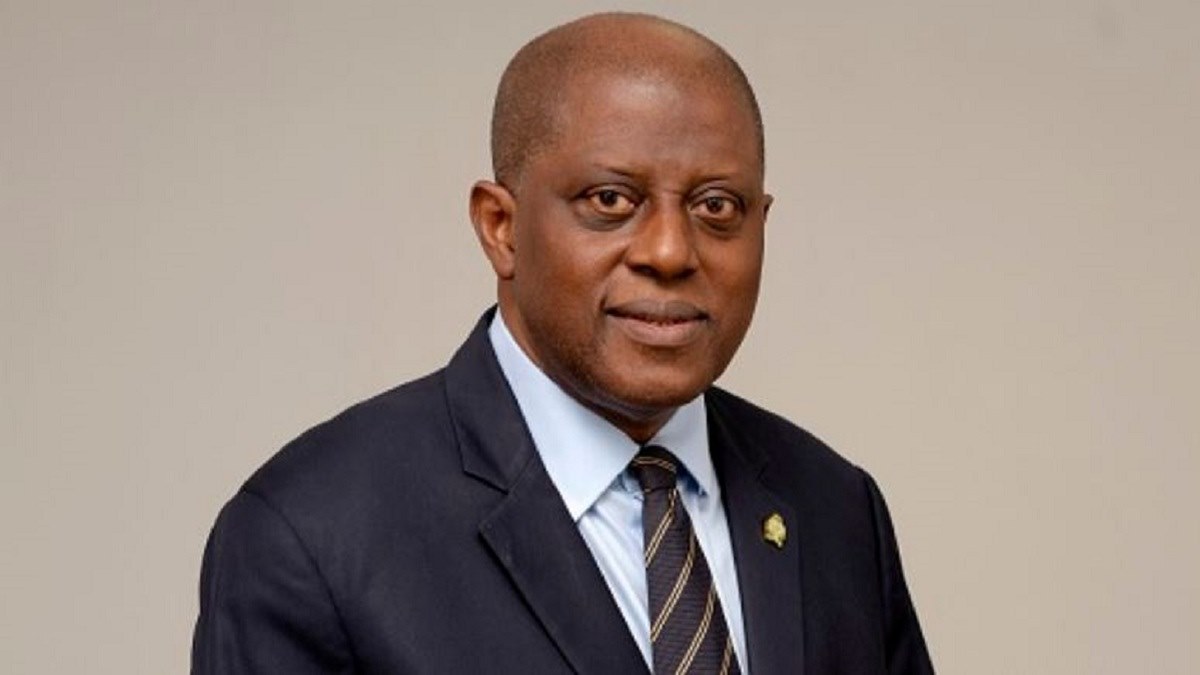




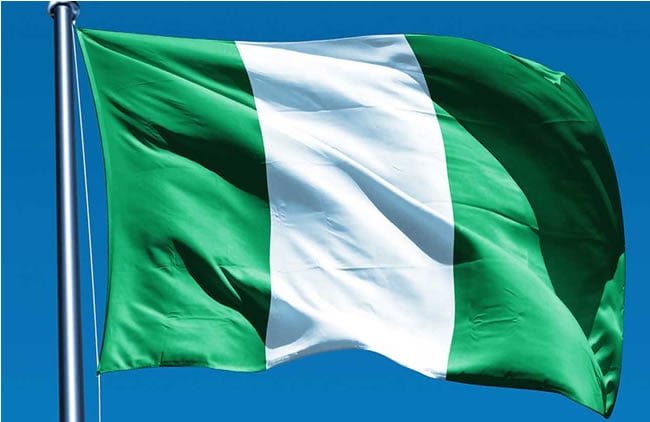

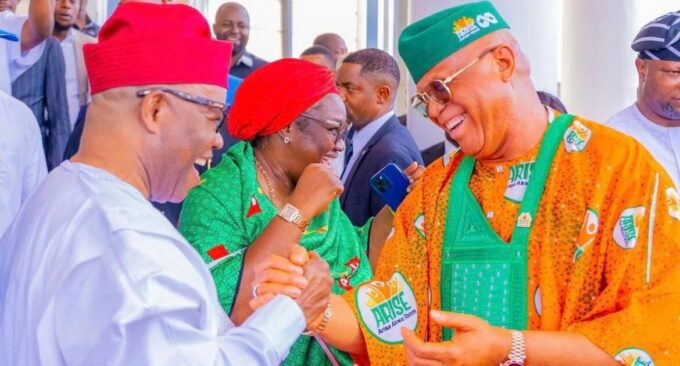
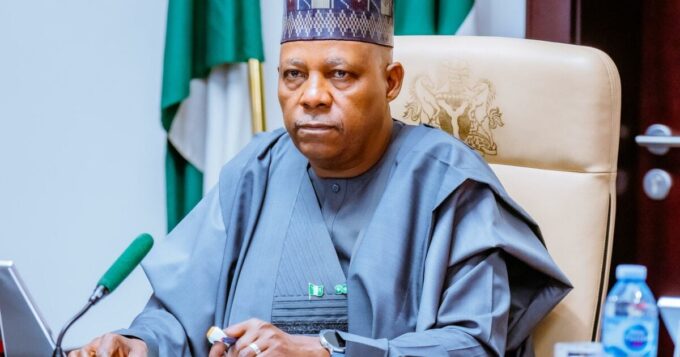


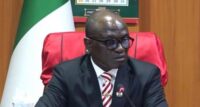
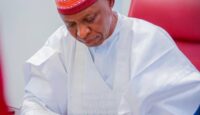

Leave a comment